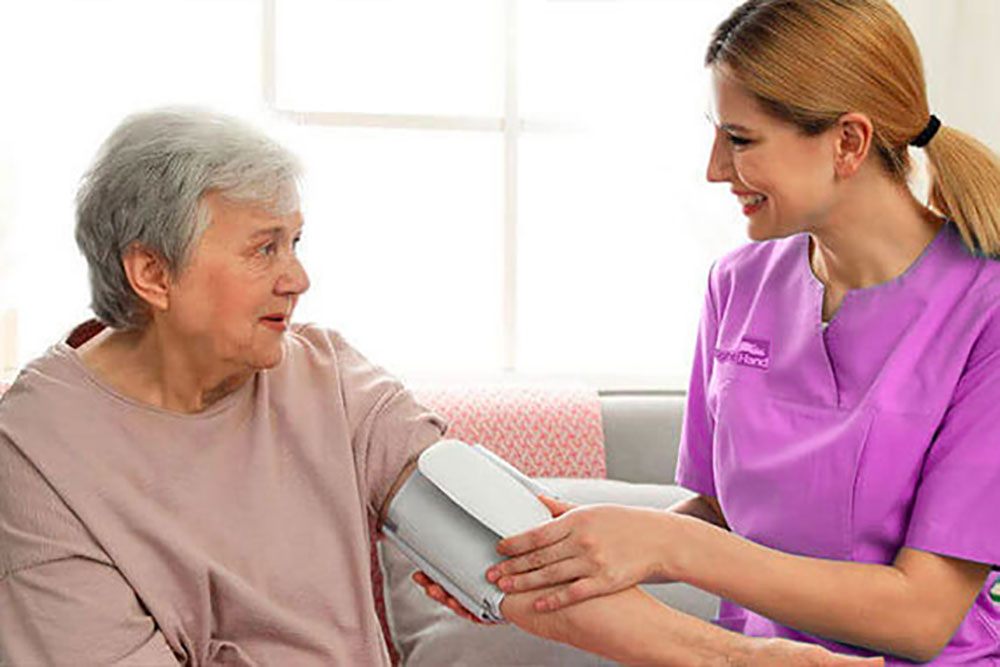Nutrition Guide for Seniors and Caregivers
As a caregiver for an aging loved one, it’s important to make sure that they are eating right and getting the correct nutrients for optimal health. But with so much diet and nutrition information available, it can be difficult to know what recommendations are accurate. So we’ve created this convenient, factual guide that covers the basics of nutrition for seniors and their caregivers.
Why healthy eating is important for seniors
While eating a healthy, balanced diet is a good idea for everyone, it’s especially important for seniors. Not only does it help ensure that they receive adequate amounts of vital nutrients, it also prevents muscle and bone loss, protects against illness and diseases, and alleviates stress on the body due to excess weight.
However, it can be difficult for seniors to get enough of the important vitamins, minerals, and nutrients, because as we age, our body requires fewer calories. So many seniors have reduced or minimal appetites. Therefore, the best options are typically nutrient-dense foods, such as fruits and vegetables, whole grains, lean proteins, seeds and nuts, and legumes. A balanced, nutritious diet will include a mix of these foods on a regular basis to ensure that the individual gets enough protein, carbohydrates, healthy fats, fiber, calories, and vitamins and minerals each day.
Protein
Protein is essential for everyone, but for seniors, it’s especially vital. Our bodies use protein for repair and maintenance, and seniors who do not eat enough protein can experience muscle loss, greater risk of injury, and slow healing. So each meal should include a source of protein, such as:
- Lean meats (fish or poultry)
- Eggs
- Legumes
- Seeds and nuts
- Yogurt
- Carbohydrates
When it comes to carbohydrates, complex is best. Complex carbohydrates provide the most nutrients and fiber, which is essential for digestive health and also helps reduce cholesterol, prevent high blood pressure, and maintain balanced blood sugar levels. Whole grains, fruits and vegetables, and legumes are all excellent complex carbohydrates.
Fats
Our bodies need fats for brain function, nutrient absorption, and overall physical and mental health. But not all fats are created equal. You’ve probably heard of “good” fats and “bad” fats. Good fats are unsaturated fats found in things like salmon, nuts, avocados, eggs, and vegetable oils. These fats are vital for the body to function properly and actually help reduce the risk of heart attack or stroke.
Bad fats include saturated and trans fats, with trans fats being the worst. Fortunately, trans fats are much less common nowadays, but they can still be found in some processed and fried foods. Saturated fats are less harmful, but should still be eaten in moderation, as they can increase the risk of heart attack, stroke, and other health issues. Red meats and high-fat dairy products, such as butter, ice cream, and cheese, all include saturated fats.
Vitamins and nutrients
There are a few nutrients that are especially important for seniors to get on a regular basis.
- Vitamin B-6 — essential for a robust immune system
- Vitamin B-12 — vital for cellular regeneration
- Vitamin D and Calcium — calcium is necessary for bone strength, but our bodies can’t absorb it without vitamin D
- Iron — needed to create red blood cells
While it’s best to get your vitamins and nutrients from real food sources, that’s just not always possible. Some seniors may need to take a supplement to ensure that they get the recommended amounts of necessary nutrients. However, you should always talk to your loved one’s doctor before giving them any vitamins or supplements. The doctor can determine if their diet is adequate or if supplementation is necessary.
You should also remember that, as a caregiver, it’s important to make sure that you are eating a balanced, healthy diet as well. You can’t give your loved one the care they need without caring for yourself. If taking the time to care for yourself sounds impossible, Right Hand Senior Care would love to help. To learn more about our at-home care for seniors, contact us.

We are Superheroes in Comfortable Clothes™
We take care of our clients, their families, our staff, and our league of franchise owners.

